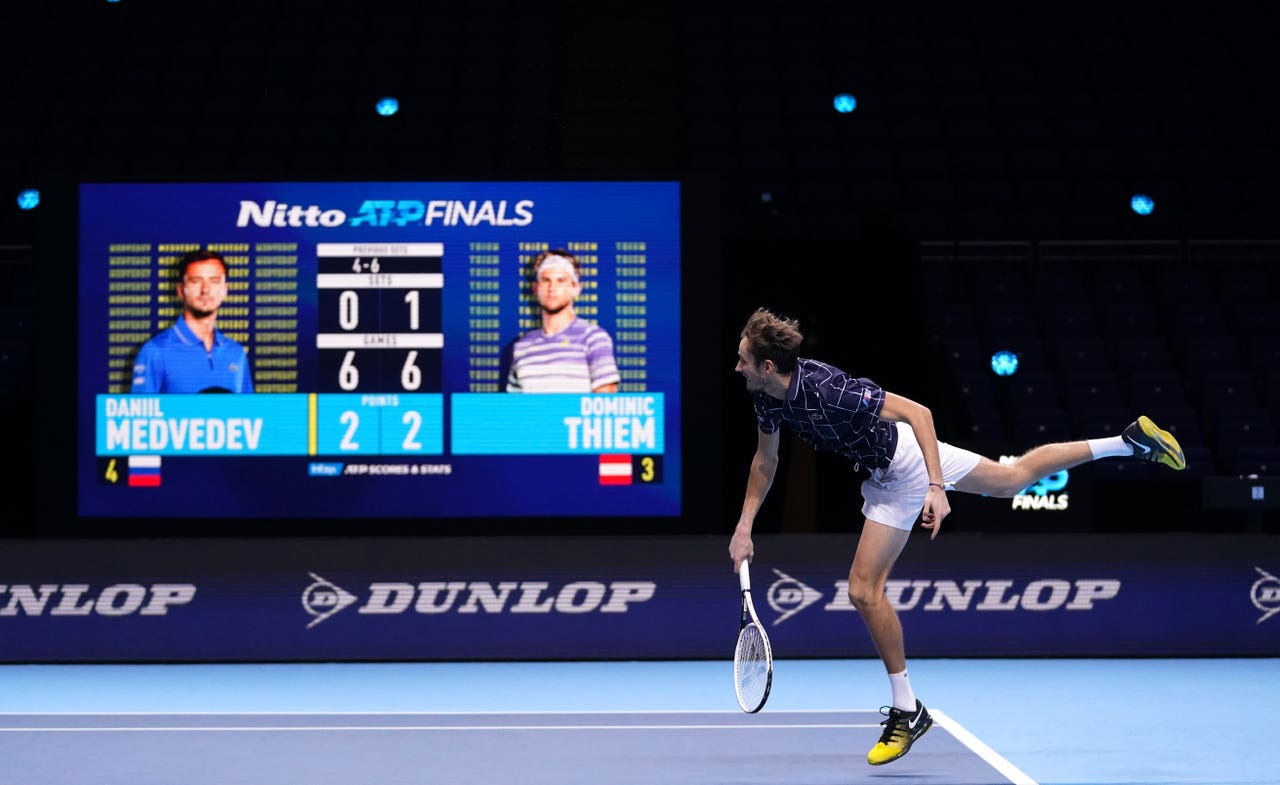The world of professional tennis is a relentless crucible of physical and mental endurance, where athletes push their limits in pursuit of glory. But sometimes, even the most determined efforts are met with unexpected challenges, not just from formidable opponents, but from the very officials tasked with maintaining fair play. Such was the dramatic case in a recent Beijing semifinal, where Daniil Medvedev`s valiant fight against Lurner Tien spiraled into a controversy involving an umpire`s contentious call and a subsequent ATP intervention.
The Semifinal Showdown: A Battle Against Adversity
Medvedev, known for his relentless baseline game and strategic prowess, found himself embroiled in a grueling battle. He held the tactical upper hand, even serving for the match in the second set—a position from which many expected him to close out the contest with his characteristic resolve. However, the unforgiving demands of the professional tour, especially late in the season, began to exact their toll. As the match wore on, a different kind of adversary emerged: debilitating cramps, forcing Medvedev to eventually retire with the score at 7-5, 5-7, 0-4. This intense physical struggle, however, was shockingly misinterpreted, leading to a decision that ignited a firestorm of criticism across the tennis community.
A Call for “Lack of Effort”: The Umpire`s Disputed Judgment
In a moment that left spectators, commentators, and former players alike utterly bewildered, umpire Adel Nour issued a “lack of effort” warning to Medvedev early in the second set. This specific penalty, typically reserved for players perceived to be disengaged, deliberately tanking, or simply not giving their best, struck a particularly dissonant chord. For an athlete visibly struggling with an acute physical ailment, to suggest a deficiency in effort seemed to defy the very spirit of competitive sports and a basic understanding of human physiology under duress. It immediately raised profound questions about the umpire`s judgment, his situational awareness, and his understanding of a player`s real-time physical condition. One might even wonder if the umpire, from his elevated perch, possessed a superhuman ability to discern between genuine, agonizing physical distress and a mere dip in motivational resolve.
Chesnokov`s Unsparing Critique: “Worst Officiating Decision of the Year”
Former World No. 9 Andrey Chesnokov, a veteran of countless high-stakes matches, minced no words in his assessment of the incident. His reaction, channeled through various interviews, was one of profound disappointment and righteous indignation. “Honestly, I don`t know how Medvedev lost again: everything was in his hands,” Chesnokov remarked, highlighting Medvedev`s initial control of the match. He attributed Medvedev`s eventual downfall to “some monstrous fatigue,” which ultimately prevented him from continuing.
“In such a situation, the umpire should be warned for such a decision. It`s simply disgusting,” Chesnokov declared, pulling no punches. “If he`s an idiot, it`s for a long time. Just a nightmare. For me, this is an unrealistically scandalous decision. There`s no judicial competence whatsoever. I would say this is the worst officiating decision of the year.”
His critique extended to a mocking suggestion: “Let him play tennis himself, and we`ll see which parts of his body cramp up.” The irony was not lost: an umpire, comfortably seated in his “golden chair,” passing judgment on the excruciating physical agony of an elite athlete battling for a semifinal spot.
Chesnokov also expressed confidence that fellow top player Novak Djokovic, known for his keen eye on such matters, would likely share his sentiment regarding the “boorish decision” and the imperative for the umpire to acknowledge his significant error.
The ATP Steps In: A Swift and Necessary Rectification
In a crucial development that unequivocally underscored the gravity of the umpire`s misjudgment, the ATP officially acknowledged the error and rescinded the warning issued to Medvedev. This swift intervention served as a powerful validation of the widespread criticism leveled against the umpire and a reaffirmation of the sport`s unwavering commitment to fairness, accuracy, and player welfare in officiating. It also highlighted the critical importance of transparency and accountability within the ATP`s rigorous regulatory framework, sending a clear message that even officials are subject to review and correction.
Beyond the Baseline: Understanding Player Endurance and Officiating Empathy
This incident serves as a stark reminder of the immense physical and mental toll exacted by professional tennis. Players frequently battle through injuries, overwhelming fatigue, and various acute ailments, often pushing themselves to the brink of collapse. A “lack of effort” call, particularly when a player is clearly suffering from debilitating cramps, demonstrates a profound misunderstanding of the inherent realities and sacrifices of high-performance sport. It underscores the vital need for umpires to possess not only a thorough, encyclopedic knowledge of the rules but also a nuanced understanding of player physiology, the context of the match, and the extraordinary pressures these athletes face. While umpires are undeniably crucial guardians of the game`s integrity, they must also act with empathy, discernment, and a robust sense of situational awareness.
The Beijing semifinal, while ultimately ending in a bitter defeat for Daniil Medvedev, has brought to light a significant and timely conversation about officiating standards, player welfare, and accountability in professional tennis. The swift reversal by the ATP was a necessary and commendable step, reinforcing the fundamental principle that even officials are not infallible and that rigorous oversight is paramount. As the tennis season progresses, this incident will likely serve as a powerful cautionary tale, prompting a closer and more empathetic look at how player effort is assessed, especially when the human body, pushed to its absolute physiological limits, begins its inevitable rebellion. The drama in Beijing was more than just a tennis match; it was a compelling narrative about resilience, judgment, and the ongoing quest for perfect fairness in a sport that truly demands everything from its participants.
Article by [Your Name/AI Assistant]

